-
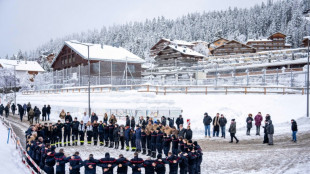 40 white roses: shaken mourners remember Swiss fire victims
40 white roses: shaken mourners remember Swiss fire victims
-
German trial starts of 'White Tiger' online predator

-
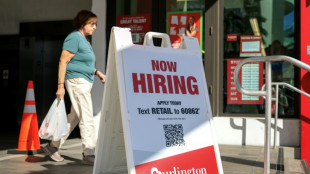 Stocks rise despite mixed US jobs data
Stocks rise despite mixed US jobs data
-
'Palestine 36' director says film is about 'refusal to disappear'

-
 US December hiring misses expectations, capping weak 2025
US December hiring misses expectations, capping weak 2025
-
Switzerland 'devastated' by fire tragedy: president

-
 Rosenior not scared of challenge at 'world class' Chelsea
Rosenior not scared of challenge at 'world class' Chelsea
-
Polish farmers march against Mercosur trade deal
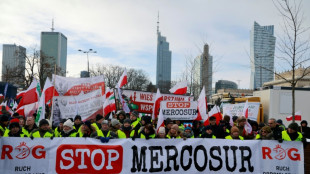
-
 Swiatek wins in 58 minutes as Poland reach United Cup semis
Swiatek wins in 58 minutes as Poland reach United Cup semis
-
Ski great Hirscher pulls out of Olympics, ends season

-
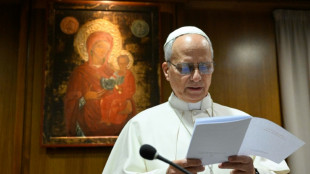 'War is back in vogue,' Pope Leo says
'War is back in vogue,' Pope Leo says
-
Storms pummel northern Europe causing travel mayhem and power cuts

-
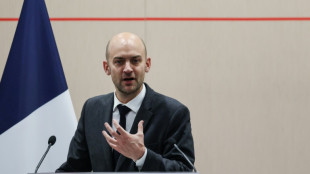 France has right to say 'no' to US, Paris says
France has right to say 'no' to US, Paris says
-
TikTok drives 'bizarre' rush to Prague library's book tower

-
 EU countries override France to greenlight Mercosur trade deal
EU countries override France to greenlight Mercosur trade deal
-
Russia joins Chinese, Iran warships for drills off S.Africa
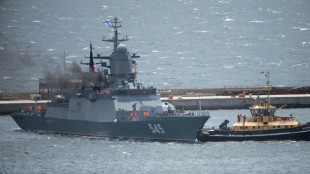
-
 Stocks rise ahead of US jobs data and key tariffs ruling
Stocks rise ahead of US jobs data and key tariffs ruling
-
'All are in the streets': Iranians defiant as protests grow
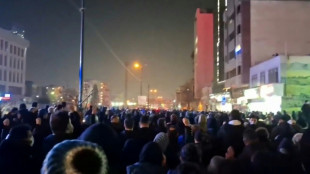
-
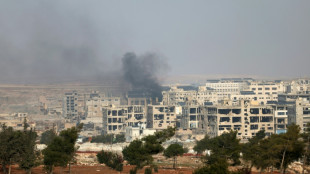 Kurdish fighters refuse to leave Syria's Aleppo after truce
Kurdish fighters refuse to leave Syria's Aleppo after truce
-
Grok turns off AI image generation for non-payers after nudes backlash

-
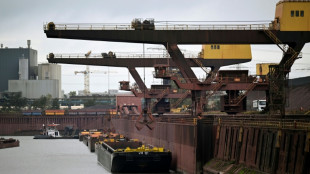 Germany factory output jumps but exports disappoint
Germany factory output jumps but exports disappoint
-
Defiant Khamenei insists 'won't back down' in face of Iran protests

-
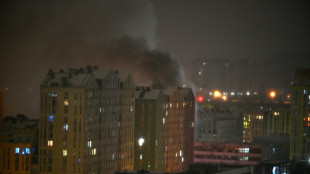 Russian strikes cut heat to Kyiv, mayor calls for temporary evacuation
Russian strikes cut heat to Kyiv, mayor calls for temporary evacuation
-
Switzerland holds day of mourning after deadly New Year fire

-
 Hundreds of thousands without power as storms pummel Europe
Hundreds of thousands without power as storms pummel Europe
-
Man City win race to sign forward Semenyo

-
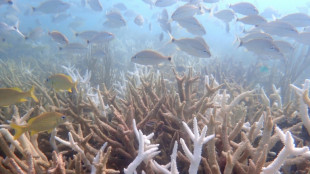 Experts say oceans soaked up record heat levels in 2025
Experts say oceans soaked up record heat levels in 2025
-
'Would be fun': Alcaraz, Sinner tease prospect of teaming up in doubles

-
 Man City win race to sign Semenyo
Man City win race to sign Semenyo
-
Chinese AI unicorn MiniMax soars 109 percent in Hong Kong debut

-
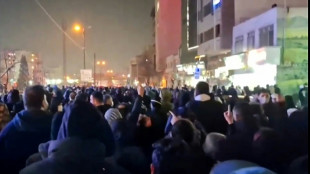 Iran rocked by night of protests despite internet blackout: videos
Iran rocked by night of protests despite internet blackout: videos
-
Swiatek romps to United Cup victory in 58 minutes

-
 Procession of Christ's icon draws thousands to streets of Philippine capital
Procession of Christ's icon draws thousands to streets of Philippine capital
-
Every second counts for Japan's 'King Kazu' at 58

-
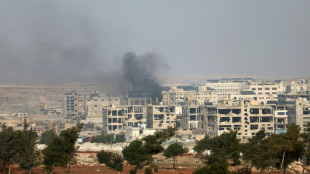 Syria announces ceasefire with Kurdish fighters in Aleppo
Syria announces ceasefire with Kurdish fighters in Aleppo
-
Russia hits Ukraine with hypersonic missile after rejecting peacekeeping plan

-
 Asian stocks mixed ahead of US jobs, Supreme Court ruling
Asian stocks mixed ahead of US jobs, Supreme Court ruling
-
Scores without power as Storm Goretti pummels Europe
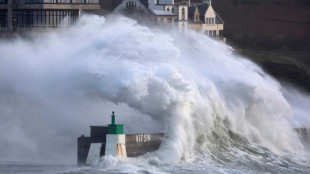
-
 Sabalenka gets revenge over Keys in repeat of Australian Open final
Sabalenka gets revenge over Keys in repeat of Australian Open final
-
Fresh from China, South Korea president to visit Japan

-
 Injured Kimmich to miss icy Bundesliga return for Bayern
Injured Kimmich to miss icy Bundesliga return for Bayern
-
Rybakina has little hope of change to tennis schedule

-
 Osimhen, Nigeria seek harmony with Algeria up next at AFCON
Osimhen, Nigeria seek harmony with Algeria up next at AFCON
-
US immigration agent's fatal shooting of woman leaves Minneapolis in shock
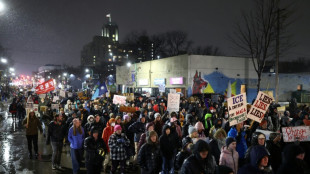
-
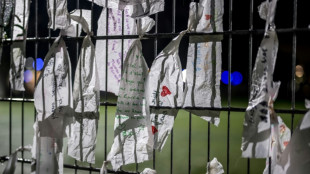 After fire tragedy, small Swiss town mourns 'decimated generation'
After fire tragedy, small Swiss town mourns 'decimated generation'
-
Switzerland mourns Crans-Montana fire tragedy

-
 Russia bombards Kyiv after rejecting peacekeeping plan
Russia bombards Kyiv after rejecting peacekeeping plan
-
Crunch time for EU's long-stalled Mercosur trade deal

-
 Asian stocks rally ahead of US jobs, Supreme Court ruling
Asian stocks rally ahead of US jobs, Supreme Court ruling
-
'Sever the chain': scam tycoons in China's crosshairs

Venezuela braces after Strike
The first kinetic U.S. strike aimed at a suspected cartel vessel departing Venezuela has jolted the region and pushed Caracas onto a war-footing. In Washington, officials frame the action as a necessary escalation in a broader campaign against transnational crime. In Caracas, leaders denounce it as a pretext for intervention. Between these poles lies a volatile mix of military signaling, legal ambiguity, and the risk of miscalculation.
In the early hours of this week’s operation, a U.S. Navy asset destroyed a speedboat that American officials said was transporting narcotics and crewed by members of a violent gang with roots in Venezuela. The attack, which killed multiple occupants, marked a departure from the long-standing pattern of maritime interceptions and arrests in the Caribbean. It was a strike designed to deter—and to advertise a new threshold.
Inside the United States, the move sits within a sharper doctrine: treating major Latin American criminal organizations as terrorist entities and, when judged necessary, applying military force beyond U.S. borders. Recent designations and rhetoric have been used to justify an expanded toolset—sanctions, asset freezes, forward deployments, and, now, lethal action at sea. Critics warn that such steps outpace statutory authorities and established international law. Supporters counter that cartels operate as militarized networks and should be met accordingly.
In the days following the strike, senior officials signaled that more operations are on the table. Additional U.S. aircraft have moved into the Caribbean theater, and planners are weighing options that range from intensified maritime interdiction to potential strikes on cartel infrastructure. The visible buildup—paired with high-profile statements from the White House—aims to deter trafficking networks and pressure Caracas to curb their reach.
Venezuela has answered with its own show of force. President Nicolás Maduro ordered troop surges to coastal and border states identified as smuggling corridors, while defense chiefs pledged large-scale counter-narcotics operations under national command. The message is twofold: sovereignty will be defended, and Caracas—not Washington—will police Venezuela’s territory and adjacent waters. The moves underscore how quickly an anti-cartel push can harden into state-to-state confrontation.
The legal terrain remains unsettled. Absent a specific congressional authorization for the use of force against Venezuela, and without a U.N. mandate, scholars question the durability of a self-defense rationale for strikes beyond interdiction at sea. Even advocates of a tougher line acknowledge that expanding targets inland would raise qualitatively different questions about sovereignty and escalation. The administration’s rebranding of counter-drug policy with overt military framing has amplified these debates at home and abroad.
Markets and migration add further complexity. Any spiral that interrupts Venezuelan oil logistics, triggers new sanctions rounds, or heightens insecurity could reverberate across regional energy flows and displacement patterns. Neighboring states, wary of spillover violence and politicized migration surges, are urging restraint even as they cooperate on interdiction and financial tracking. Early diplomatic readouts suggest quiet shuttle efforts to prevent misreads at sea from becoming catalyst events.
For now, the strategic picture is clear enough. Washington has crossed a visible line with a highly publicized strike meant to reset cartel risk-reward calculations. Caracas has mobilized to signal resolve and control. Both sides are testing how far they can push without tipping into a broader clash. The coming weeks—defined by whether operations stay offshore, how each side messages its red lines, and whether third countries can shape rules of engagement—will determine if this “first strike” becomes an inflection point or an isolated warning shot.

Россия: Путин - свинья мира или радости пропаганды убийств

Россия: Преступная "спецоперация" на Украине идет не по плану
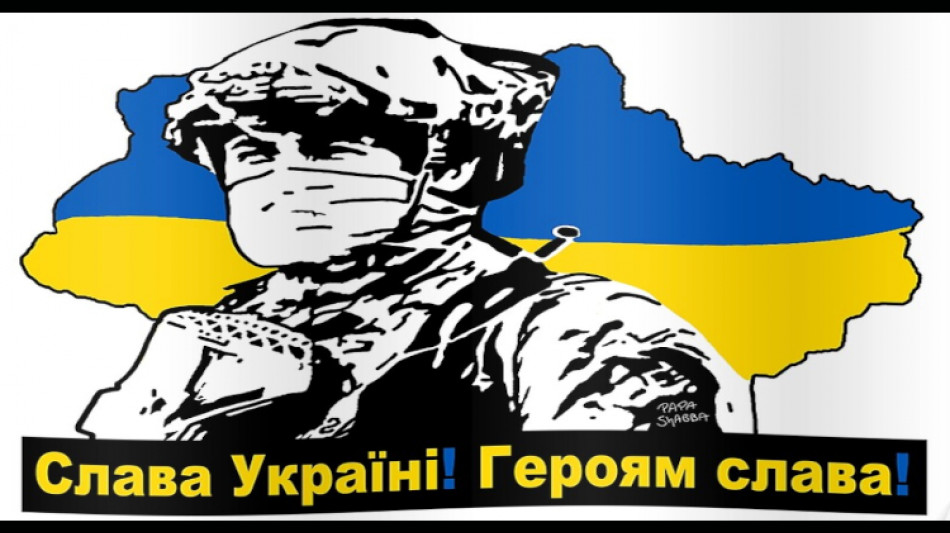
Ukrainian army destroys Russian terror scum!

Россия: Власть психует и чувствует неуверенность

Военный преступник России Путин не изменит судьбу человечества!

Россия: Военный преступник Владимир Путин на фронте войны

Russian Bastards murder defenceless children in Ukraine

Россия: Военные преступники Путин заберёт на войну всех

Тысячи погибших солдат российского террора опознаны! Свинья Пригожин теперь хочет мира?

Россия: Пропагандисты ликуют: отрезали голову!

Пригожин оправдывается | Лавров умоляет о везите в США



